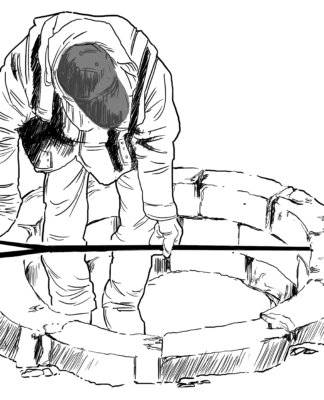HOW DO you make life better for terminally ill patients?
Two senators have filed separate bills providing mechanisms for palliative care, a medical approach that provides pain and symptom relief, as well as spiritual and psychosocial support to terminally ill patients and their families.
Aside from providing palliative care and end-of-life care services to all patients facing serious diseases, the bills filed by Senators Ferdinand Marcos Jr. and Jinggoy Estrada will also put up a Palliative Trust Fund that will provide financial assistance to patients.
Holistic approach
Dr. Jocylyn Bautista, head of the Palliative Care Unit of the UST Hospital, described palliative care as “an approach wherein patients with life-limiting illnesses are provided good quality of life regardless of the disease.”
“It doesn’t mean that when you have cancer, you are supposed to suffer and sulk in depression,” she said.
The goal is to provide comfort and relief through a holistic approach, which covers not only physical pain, but also psychosocial and even spiritual concerns, she added.
“We just don’t talk about where it hurts. We also talk of a patient’s problems and how he sees life,” Bautista said.
Palliative care is not limited to the hospital setting, said Dr. Patrick Moral, chairman of the Bioethics Department of the Faculty of Medicine and Surgery.
A patient may either visit a specialist directly for pain relief or go to a hospital and be referred to a specialist who will conduct the treatment procedures. In some cases, the specialist may be the one to visit a patient at home.
In either case, the doctor explains the situation to the patient and suggests procedures to address particular needs.
Symptom control, which can be an oral or injective treatment, is a method that targets the symptoms that might be causing discomfort to patients to lessen their pain, while “advanced directives” elaborate on what the patient should or should not do to avoid pain.
Bautista said the approach varies from one patient to another, pointing out that a patient’s culture and religion must also be taken into account.
Even though a patient is already dying, he should experience the most comfort possible, she added.
Need for legislation
Moral said that a law for palliative care is important to meet the needs of the patients suffering serious illnesses.
“Ranging from infections to degenerative diseases, [a law will be] helpful, especially when cure presents a small option,” he said.
Bautista added: “Countries like the United Kingdom, Canada and Australia have a nationalized care program, which means patients can avail services like palliative care without actually paying for anything.”
An allotment of P500 million shall be used for the initial implementation of the Marcos bill, which would also put up community-based hospice units and palliative care centers.
Bautista said modifications must also be made in hospitals so they could better serve patients needing palliative care.
“It’s better if we have a hospice ward for palliative care because instead of getting the bed of tertiary hospitals where other patients are also lining up, we will just transfer a patient there since he needs a different kind of care,” she said.














